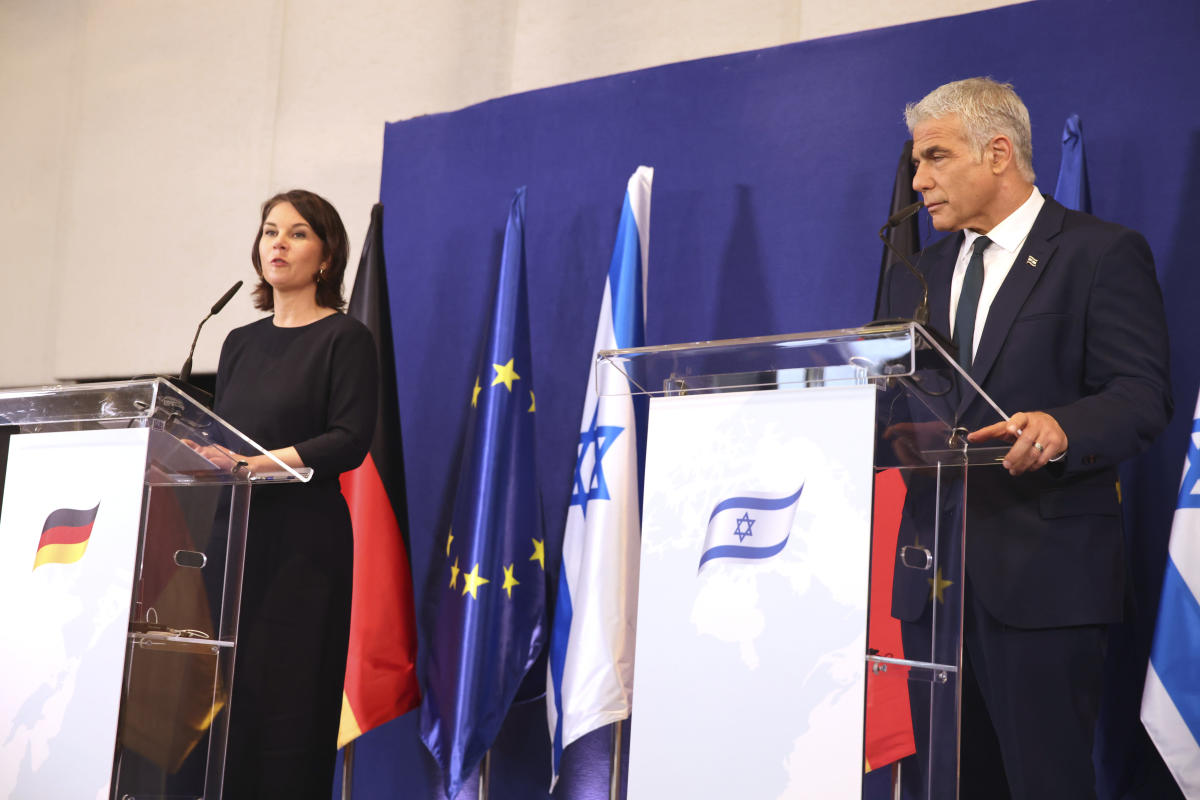
JERUSALEM (AP) — Germany’s foreign minister said Thursday that nuclear talks with Iran are entering a “final phase” and that, despite Israeli reservations, a return to a nuclear agreement would make the region safer.
Foreign Minister Annalena Baerbock spoke at a joint press conference in Tel Aviv with her Israeli counterpart, Yair Lapid, during an official visit to Israel.
Her remarks come as negotiations between Iran and world powers reconvened this week in an effort to revive a 2015 nuclear accord that curbed Tehran’s nuclear program. That deal crumbled after the Trump administration withdrew from the agreement in 2018.
Israel and Iran are archenemies, and Israel has vocally objected to U.S.-led efforts to revive the deal, known as the Joint Comprehensive Plan of Action. Its leaders have said it would not be bound by any agreement between world powers and Iran, leaving it room to maneuver militarily.
Lapid said that he and Baerbock discussed the nuclear talks and presented her with Israel’s position “that a nuclear Iran endangers not only Israel, but the entire world.” He said that Iran is “an exporter of terror from Yemen to Buenos Aires” and that the agreement must take into account its regional aggression.
Baerbock said that she was “convinced that a full restoration of the JCPOA would make the region more secure, including Israel, otherwise we would not be having these talks.”
She said the talks with Iran, of which Germany is a party, have reached a “very critical point” and that it was important for Iran to come back to the table “with a willingness to compromise and without maximum demands.”
“We want to do everything we can to ensure that with this agreement, Israel’s security is guaranteed,” Baerbock said.
Israel was formed in the wake of the Holocaust in 1948 and the two countries only established diplomatic ties in 1965. Over the decades, those ties have warmed and Germany is one of Israel’s closest and most important international allies and trade partners.




